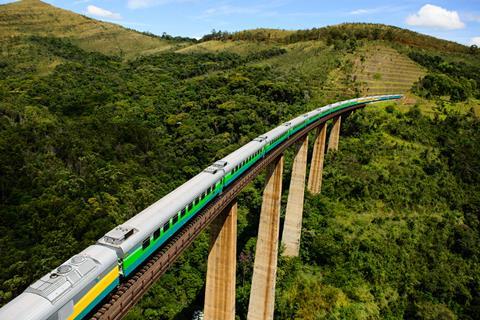
BRAZIL: The government has launched a programme to encourage investment in motive power and rolling stock that will reduce greenhouse gas emissions.
The Frota Ferroviária Verde project was announced in the Official Gazette of the Union on September 30 and the regulation came into force on October 7.
The main objective is to encourage ‘efficient and rational consumption of materials and energy sources used in operation of rail services’. The Ministry of Infrastructure believes the programme will help foster the gradual replacement of locomotives using fossil fuels by other types of traction that meet sustainability criteria. It will publish guidelines for the National Land Transport Agency to encourage concessionaires and other railway operators to meet the programme’s objectives.
Eight formal objectives have been set:
- encourage investments that enable the reduction of greenhouse gas emissions resulting from operation of the railway rolling stock fleet;
- encourage efficient and rational consumption of energy sources used for operation of the rolling stock fleet;
- encourage initiatives that seek to increase the share of renewable and non-polluting sources in the operation of rail transport services for freight and passengers;
- promote a reduction in negative socio-environmental impacts through implementation and operation of rail transport services;
- encourage modernisation of the national rolling stock fleet in line with best international practice;
- stimulate technological development of the national railway industry in line with sustainability strategies;
- encourage sustainability projects related to railway concessions;
- promote initiatives that consider measures to adapt rail infrastructure to climate change and increase climate resilience
Minister of Infrastructure Marcelo Sampaio said ‘this is a step towards the future of the sector and the country as a whole. It is a segment that has been developing and using more and more technologies, products and procedures capable of reducing greenhouse gas emissions, energy consumption and natural resources’.
Railways were ‘associated with the highest safety standards’, he continued, and ‘measures to help adapt to climate change would make them safer and more sustainable’.
















